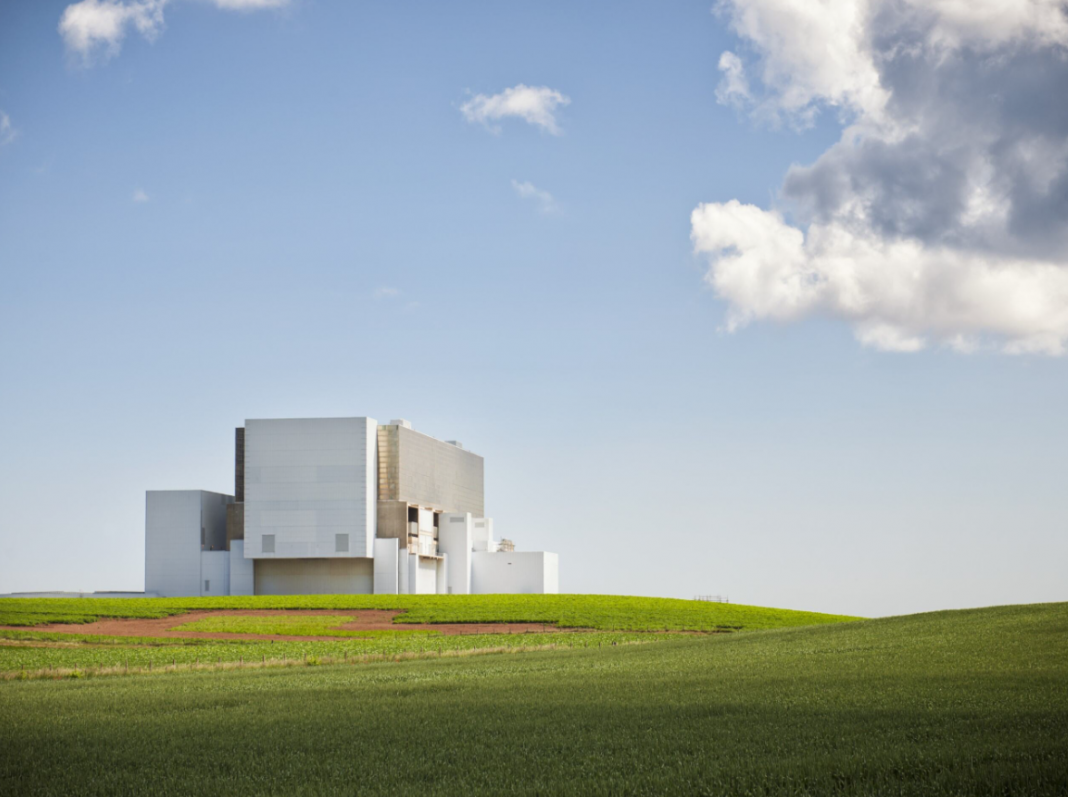Midlands Nuclear has taken a significant step toward integrating nuclear power into the region’s future low-carbon energy mix by examining and assessing potential sites for new power stations.
The siting study, commissioned and funded by Midlands Net Zero Hub on behalf of Midlands Nuclear, delivered by Equilibrion and supported by Portinscale Consulting, assesses where and how nuclear energy could supply low-carbon electricity, hydrogen, and sustainable fuels for industry, transport, and homes.
The UK Government outlined its commitment to clean energy in the UK’s Modern Industrial Strategy published on 23rd June. The strategy focuses on clean energy, industrial decarbonisation, and lowering energy costs, pledging to double investment in clean energy to over £30 billion by 2035.
Alongside this, up to 24GW of new nuclear capacity is planned by 2050, backed by £20billion of investment in Sizewell C and the Rolls-Royce Small Modular Reactor development being led by Great British Energy – Nuclear. Midlands Nuclear believes the Midlands could attract similar investment, strengthening energy security, advancing net zero goals, and establishing the region as a key player in the energy transition.
Forthcoming projects would support regional jobs and industrial growth enabling the Midlands to capture more of the potential 3,000 jobs at peak construction for a single Small Modular Reactor and £500-660m increase in local Gross Value Add from a two-unit deployment delivering almost 1GW of clean electricity.
The Midlands is already home to nuclear facilities, including the Rolls-Royce Submarines nuclear licensed operations at its site at Raynesway, Derby, and possesses a strong and capable workforce already involved in delivering and supporting nuclear projects.
The region is also rich in natural assets including the River Trent and strategic coastal and inland infrastructure. At its peak, “Megawatt Valley” generated 25% of the UK’s electricity, but with the closure of coal-fired power stations, this much needed local capacity has been lost.
Restoring the Midlands’ role in energy generation could revitalise local economies, bring energy production closer to where it’s used, and help reduce energy bills nationwide.
New nuclear power station proposals must meet strict regulatory and planning requirements and pass through rigorous processes including public engagement and consultation. However, the siting study demonstrates that sites in the Midlands could pass the siting criteria including on population density, proximity to military activities and access to essential cooling water.
Nuclear applications could support the region by delivering consistent, reliable power for data centres, hydrogen for transport and industrial use, and heat for manufacturing and networks.
Lord Ravensdale, chair of Midlands Nuclear, said: “This study represents a pivotal step toward future expansion of clean, secure energy capacity in the Midlands through consideration of siting options for nuclear power in the region. Coming alongside a more flexible siting policy for new nuclear from the government, it is an exciting opportunity for the region to capitalise on the revival of nuclear energy across the UK.”
Jack Hayhoe, head of net zero programmes at Midlands Net Zero Hub, said: “The Midlands Net Zero Hub is delighted to have supported the development of this study, it marks a significant milestone in the Midlands’ journey toward becoming a key player in the UK’s clean energy future.
“By exploring how nuclear energy can support low-carbon electricity, hydrogen production, and sustainable fuels, the region is stepping forward as a serious contender to host new nuclear developments. The Midlands is now well-positioned to attract investment, unlock industrial growth, and deliver long-term benefits for communities, businesses, and the environment.”
Professor Martin Freer, co-director of Midlands Nuclear and CEO of the Faraday Institute, said: “Now is a fantastically good time for the development of nuclear energy sector, with government support for both small- and large-scale designs. This report puts the Midlands on the front foot regarding seizing the opportunity, creating the evidence base to build on, allowing an understanding of how nuclear energy may play into the future energy system of the region.”
Dr Phil Rogers, project director at Equilibrion, said: “We are delighted our siting study has contributed to the Midlands understanding of how the region could be a participant in the UK’s nuclear renaissance. The extensive study underpins Equilibrion’s growing capability and skills in new nuclear project and programme development at what is a pivotal moment for UK nuclear and the Midlands.
“We look forward to continuing our support to deliver the growth opportunities presented by new nuclear siting policy and the resurgence in demand for nuclear as a major contributor to prosperity, growth and decarbonisation.”



